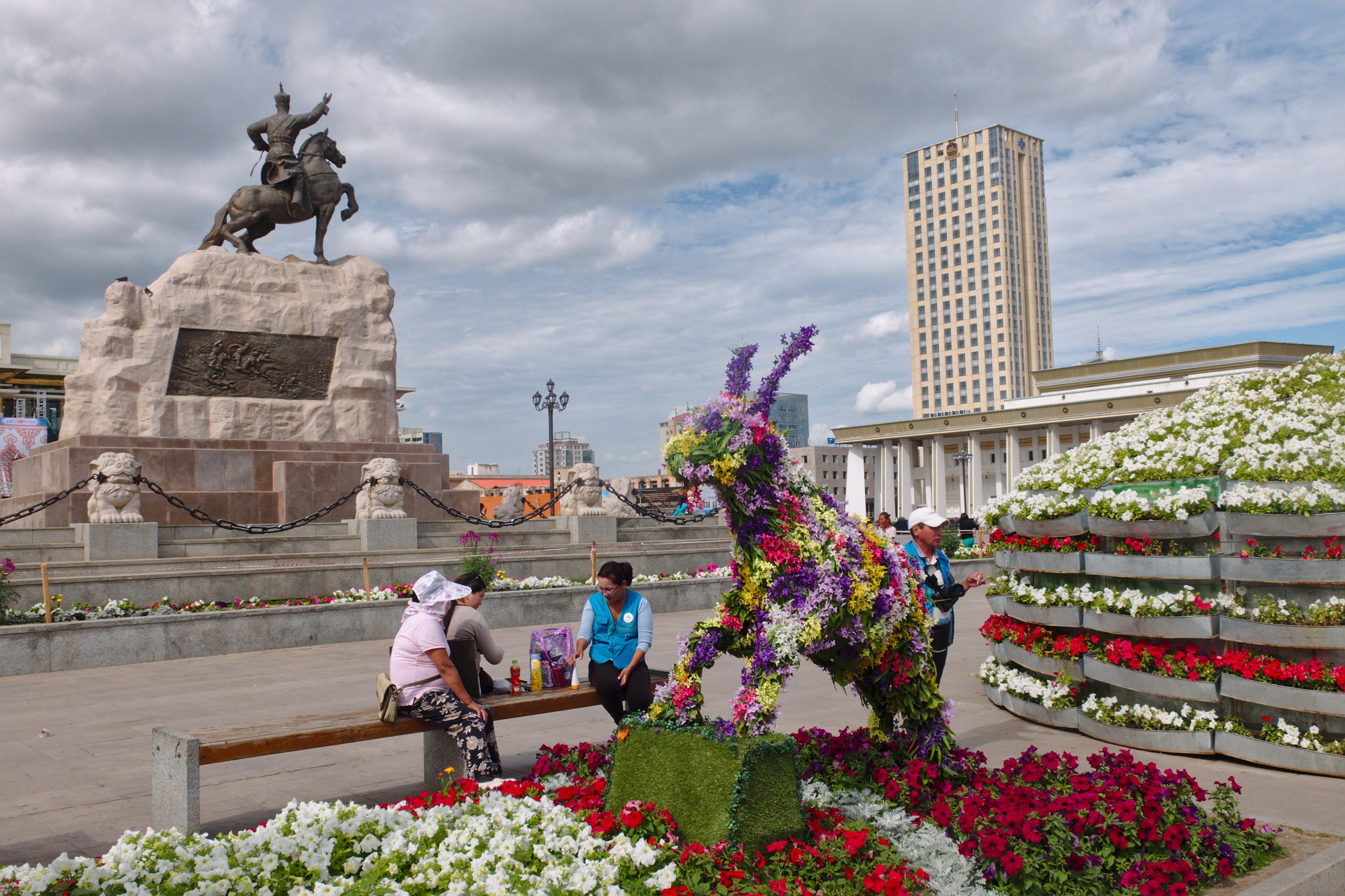Political situation Successful system changeover
Sushbaatar Square in Ulan Bator, Mongolia
The Bertelsmann Transformation Index (External link) (BTI), which measures the progress towards democracy and a market economy in 137 developing and transition countries, ranked Mongolia first (alongside Armenia) in the Eastern Europe, Caucasus and Central Asia region in 2024. In the regional governance index (External link), Mongolia ranked second (just below Ukraine).
Human rights in Mongolia are enshrined in the constitution and are largely respected. The country has an active civil society with numerous citizens’ movements and self-help initiatives.
Among the challenges the country faces is the government’s low administrative capacity. In parts, political action is also marked by personal business interests and lobbying activities.
There is need for reform both with regard to economic policy, which is not yet sufficiently aligned with environmental sustainability, and with regard to social policy, which needs to focus more on poor and vulnerable population groups than it has in the past.
Mongolia has published development strategies that are closely aligned with the 2030 Agenda’s Sustainable Development Goals. The goals set out in these strategies include further diversifying the economy, promoting vocational training, alleviating poverty, improving healthcare, protecting the environment and combating corruption.
The challenge of corruption
There is more and more awareness in Mongolian politics and among the public of how much the country’s development is being hampered by corruption. Anti-corruption laws have been adopted, monitoring bodies have been created and the digitalisation of business processes promoted. This increases transparency and makes it easier to identify instances of corruption. Despite these positive developments, however, the non-governmental organisation Transparency International still ranked Mongolia 121st out of 180 countries listed on its 2023 Corruption Perceptions Index (External link). More reforms are needed and cases of corruption need to be prosecuted with due vigour.
As at: 05/02/2025
